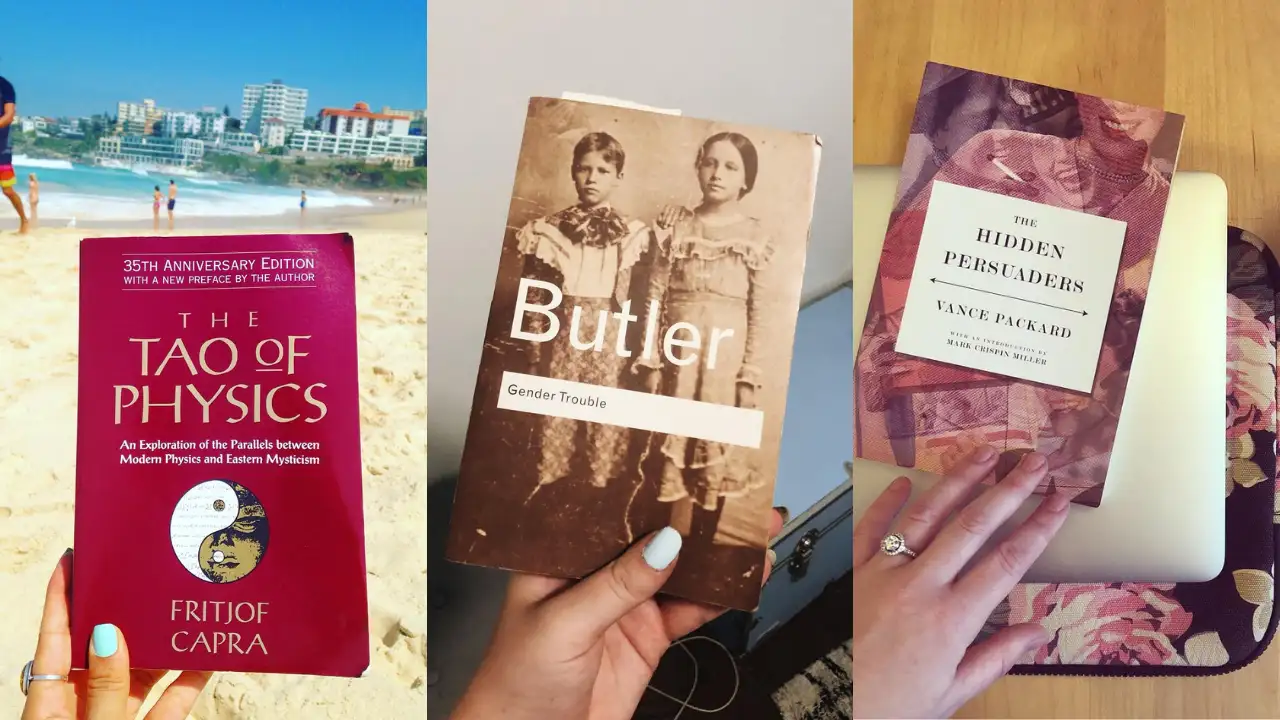Copyright timesnownews

History loves its heroes and headline moments, but some revolutions happen quietly between the pages of a book. While everyone remembers the famous texts that shaped civilisation, countless other books triggered seismic shifts that slipped through the cracks of collective memory. These forgotten literary earthquakes changed how we think, live, and see the world, yet their stories rarely make it into textbooks. They sparked scientific breakthroughs, toppled outdated beliefs, and planted seeds of change that grew into the world we inhabit today. This journey explores ten books whose impact was nothing short of world-changing, even though history somehow forgot to give them their due. Their invisibility makes their influence even more fascinating, proving that transformation doesn't always announce itself with trumpets and fanfare.,,Also Read: 10 Books That Changed the World and Could Change Yours Too,1. The Structure of Scientific Revolutions by Thomas S. Kuhn,,A philosopher of science argued that scientific progress does not accumulate gradually but advances through revolutionary paradigm shifts when existing frameworks can no longer explain anomalies. Thomas Kuhn introduced the concept of paradigms, showing how scientific communities operate within shared assumptions and methods until crises force the adoption of incompatible new frameworks. He challenged the view of science as purely objective and rational, demonstrating how social factors, institutional power, and psychological resistance shape scientific change. ,,2. Small Is Beautiful: A Study of Economics As If People Mattered by E.F. Schumacher,,An economist challenged growth-obsessed economics, arguing that systems should be designed at a human scale, that bigger is not always better, and that Buddhist economics, valuing sufficiency over maximisation, offers a superior framework. E.F. Schumacher critiqued conventional development economics that measured success purely through GDP growth, showing how large-scale industrialisation destroyed communities, environments, and meaningful work. He advocated intermediate technology appropriate to local conditions rather than imposing Western industrial methods everywhere, arguing that small enterprises and local production create more sustainable prosperity than massive corporations and global supply chains.,3. The Tao of Physics by Fritjof Capra,A physicist argued that modern physics, particularly quantum mechanics and relativity, converged with Eastern mysticism in describing reality as interconnected, holistic, and ultimately beyond rational comprehension. Fritjof Capra drew parallels between concepts in Buddhism, Hinduism, and Taoism and findings in twentieth-century physics, including the observer effect, wave-particle duality, and the fundamental interconnectedness suggested by quantum entanglement. He challenged the mechanistic worldview that dominated Western science, arguing for a holistic understanding of nature as a dynamic web of relationships rather than a collection of separate objects following mechanical laws. ,4. The Mismeasure of Man by Stephen Jay Gould,A palaeontologist systematically dismantled scientific racism by exposing how intelligence testing and craniometry were designed to confirm researchers' prejudices about racial and class hierarchies. Stephen Jay Gould examined historical cases, including Samuel Morton's skull measurements, intelligence testing used to restrict immigration and justify segregation, and the concept of general intelligence as a single measurable quantity. He showed how scientists manipulated data, made unconscious biases seem objective, and created circular reasoning where tests measured what they were designed to measure.,5. Pedagogy of the Oppressed by Paulo Freire,A Brazilian educator argued that traditional education deposits information into passive students, maintaining oppression, while liberatory education makes students active creators of knowledge through dialogue about their lived reality. Paulo Freire developed critical pedagogy, where teachers and students learn together, examining how power structures shape their lives and developing critical consciousness, enabling them to challenge oppression. He showed how education either domesticates people to accept existing arrangements or liberates them to transform unjust systems, that neutrality is impossible because all education either maintains or challenges power., ,6. Orientalism by Edward Said,,A literary scholar demonstrated how Western scholarship, literature, and art created the Orient as exotic, backward other against which the West defined itself as rational and civilised, enabling colonial domination. Edward Said showed how academic knowledge production was inseparable from imperial power, how experts on the East consistently misrepresented it through frameworks reflecting Western assumptions rather than Eastern realities. He examined how this discourse created knowledge that became truth through institutional power, how generations of scholars built on each other's distortions until the fabricated Orient seemed real.,7. The Origins of Totalitarianism by Hannah Arendt,,A political theorist analysed how Nazism and Stalinism represented a new form of government requiring not just obedience but total ideological commitment, destroying private life and making everything political. Hannah Arendt traced totalitarianism's roots to imperialism's racism and bureaucracy, to mass society creating isolated individuals desperate for meaning, and to ideologies claiming to explain all of history through a single key. She showed how totalitarianism required terror to keep populations constantly destabilised, how it destroyed distinctions between private and public, and how it made truth irrelevant by replacing facts with ideology.,8. The Hidden Persuaders by Vance Packard,,A journalist exposed how advertisers and marketers used psychological research and motivational techniques to manipulate consumers below conscious awareness, treating people as irrational subjects to be managed. Vance Packard revealed how depth psychology from Freud and others was being applied to sell products, how focus groups and psychological testing identified unconscious desires and fears that ads could exploit. He showed how advertisers learned to sell not products but identity, status, and solutions to manufactured anxieties, how they shaped desires rather than merely responding to existing needs. ,9. The Invention of Tradition by Eric Hobsbawm and Terence Ranger,A collection of essays demonstrated that many traditions presented as ancient and timeless were actually invented relatively recently to serve modern political purposes. Eric Hobsbawm and contributors examined cases including Scottish Highland culture with its clan tartans created in the nineteenth century, British royal pageantry formalised in Victoria's reign, and African tribal customs codified under colonial rule. The book revealed how nationalism requires invented traditions to create shared identity and legitimacy, how imperial powers manufactured customs to justify colonialism, and how modern states constantly create pseudo-historical rituals.,,10. Gender Trouble by Judith Butler,A philosopher argued that gender is not a natural expression of biological sex but performative, continuously created through repeated stylised acts that cite cultural norms. Judith Butler challenged the assumption that sex is a biological fact while gender is cultural, showing instead that even sex is discursively constructed, that the body itself is understood through language shaped by power. She demonstrated how heteronormativity requires stable gender categories enforced through compulsory performances, and how subversive repetitions can denaturalise gender by exposing its constructed nature.,Also Read: 10 Historical Fiction Books So Good, You’ll Forget What Year It Is,These ten books prove that influence doesn't require fame to change everything. While their titles might not roll off tongues in classrooms, their ideas flow through modern life like invisible rivers shaping the landscape. They challenged the impossible, questioned the unquestionable, and dared to imagine worlds that didn't yet exist. The scientists, activists, and thinkers who followed unknowingly walked paths these authors first carved. Their forgotten status reminds us that history's loudest voices aren't always its most important ones. Today, as we benefit from the freedoms, technologies, and perspectives these books helped create, we owe them recognition that time denied. Perhaps the real lesson isn't just about remembering these specific titles, but staying alert to the quiet revolutions happening right now in books we're overlooking, waiting for future generations to rediscover their hidden power.



